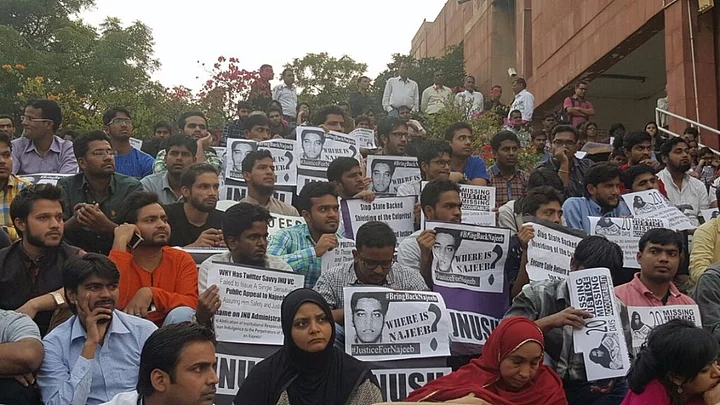A Delhi court on Thursday asked nine students to appear before it on 6 April, to record their consent or refusal to undergo a lie detector test in the case of missing Jawaharlal Nehru University (JNU) student Najeeb Ahmed.
Chief Metropolitan Magistrate Sumit Dass asked the nine students to appear before the court “without fail”.
The court was hearing a Delhi Police plea for recording of consent or refusal of the students to undergo a lie detector test.
The court turned down the submission of the nine students, who said there was no law where a court could order the test.
As per the National Human Rights Commission, the lie detector test is not authorised by law and must be regarded as illegal unless it is voluntarily accepted, the student’s lawyer said.
“Lie detector test or polygraph test has to be obviously in reference to the need or requirement in the investigation,” the court said. “Same is the prerogative of the investigating agency.”
The court said that there cannot be any better safeguard as the entire proceedings are before the magistrate, in the presence of the students, who have their own lawyer to represent them.
On 22 December, the Delhi High Court directed police to conduct lie detector tests on these JNU students regarding Najeeb Ahmed, who went missing in October last year.
The Crime Branch told the court that the nine students had failed to join the investigation.
Ahmed, 27, an MSc First Year student, went missing allegedly after a row with members of the RSS affiliated student wing Akhil Bharatiya Vidyarthi Parishad (ABVP).
The ABVP has denied involvement in his disappearance.
Join The Quint on WhatsApp. Type “JOIN” and send to 9910181818.
(At The Quint, we question everything. Play an active role in shaping our journalism by becoming a member today.)
